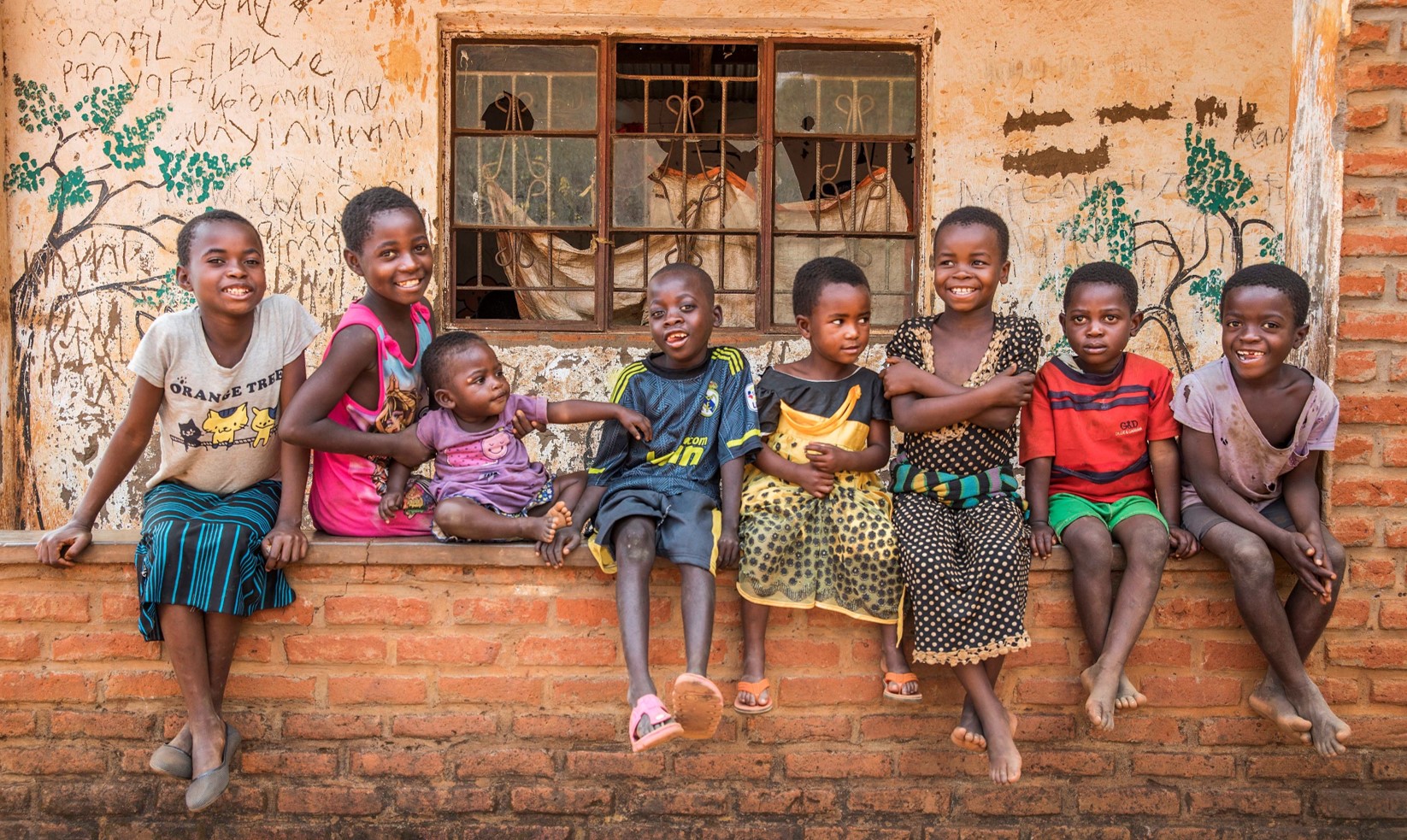
Mission
The mission of Yamba Malawi is to uplift vulnerable children by empowering their communities to break the cycle of poverty.
Life Challenges of the Women Served
Malawi has one of the highest rates of extreme poverty in the world. Of Malawi’s 18.5 million people, a staggering 70 percent live in extreme poverty, 84 percent live in rural areas, and annual gross national income (GNI) per capita is only $338. While many in Malawi suffer from extreme poverty, women and children are disproportionately affected. Interconnected children’s vulnerabilities are aggravated and perpetuated by women’s limited access to resources and opportunities. For example, although 80 percent of the population lives in rural areas, only 32 percent of holders of agricultural land in Malawi are women, which negatively impacts their ability to provide for children. Women also face limited access to agricultural inputs and manual labor, causing lower farm productivity that increases vulnerability around both food security and cash income, and further hinders investments in children’s needs.
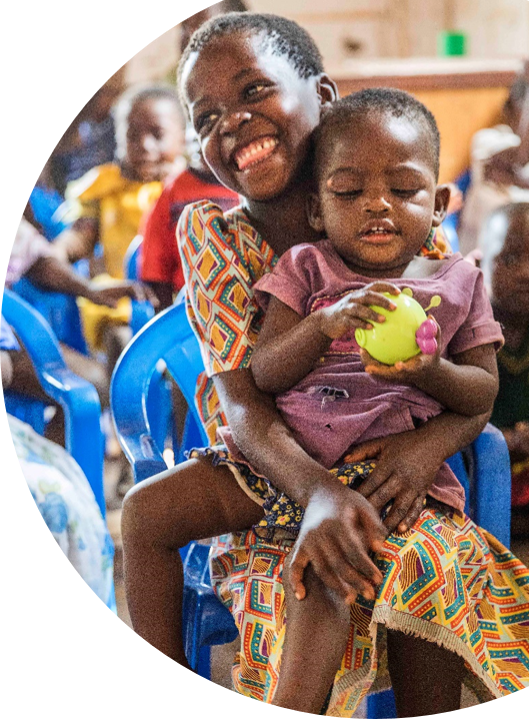 Extreme poverty also negatively impacts women’s health, resulting in one of the highest global birth rates (average 4.3 births per woman) and a high maternal mortality rate (349 deaths per 100,000 births). Women in Malawi suffer nearly twice the rate of HIV prevalence compared to men. Since women and girls are largely responsible for all cooking and childcare in the home, women and children face chronic respiratory infections exacerbated by smoke inhalation in poorly ventilated homes, 97 percent of which rely on firewood for cooking. Poor access to clean water sources and a reliance on wood for cooking and heating not only perpetuate the negative impacts of climate change and deforestation, but also result in increased time spent by women and girls collecting resources, which leaves them vulnerable to sexual harassment and exploitation. Poverty also contributes to poor education outcomes, high instances of child labor, and extremely high rates of child marriage. In turn, early marriages and pregnancies stunt girls’ educational and social development and limit their future opportunities. Further, babies born to teenage girls have worse health outcomes, which establishes a vicious cycle of vulnerability that perpetuates the cycle of extreme poverty.
Extreme poverty also negatively impacts women’s health, resulting in one of the highest global birth rates (average 4.3 births per woman) and a high maternal mortality rate (349 deaths per 100,000 births). Women in Malawi suffer nearly twice the rate of HIV prevalence compared to men. Since women and girls are largely responsible for all cooking and childcare in the home, women and children face chronic respiratory infections exacerbated by smoke inhalation in poorly ventilated homes, 97 percent of which rely on firewood for cooking. Poor access to clean water sources and a reliance on wood for cooking and heating not only perpetuate the negative impacts of climate change and deforestation, but also result in increased time spent by women and girls collecting resources, which leaves them vulnerable to sexual harassment and exploitation. Poverty also contributes to poor education outcomes, high instances of child labor, and extremely high rates of child marriage. In turn, early marriages and pregnancies stunt girls’ educational and social development and limit their future opportunities. Further, babies born to teenage girls have worse health outcomes, which establishes a vicious cycle of vulnerability that perpetuates the cycle of extreme poverty.
This widespread poverty results in multi-faceted and interconnected sources of vulnerability for children. The impacts of widespread extreme poverty on children, especially those under age 5, are serious. Poor nutrition, hygiene, healthcare, and sanitation result in chronic childhood infections and shocking rates of childhood malnutrition, and children are underserved by severely under-resourced healthcare and education systems. Extreme poverty also threatens childhood protection, leading to unacceptably high rates of child marriage, forced labor, and domestic violence.
The Government of Malawi defines seven areas of childhood vulnerability – nutrition, health, education, housing, water, sanitation, and social protection – and finds that 60.5 percent of all children are deprived of basic needs in more than one of these areas. In nutrition, 41 percent of children under age 5 are stunted, 59 percent have anemia, and 9 percent are severely underweight. In health, the three most common causes of deaths of Malawian children under age 5 – malaria, pneumonia, and diarrhea – are all preventable diseases. In education, only about half of children (both boys and girls) complete primary school. In housing, water, and sanitation, a full 97 percent of children under age 5 do not have basic needs met in at least one of these areas, and 54 percent in two areas. And in social protection, only 6 percent of children have their births formally registered, 49 percent of children ages 15 – 17 work for income, and 42 percent of girls are married by age 18, with 9 percent married by age 15.
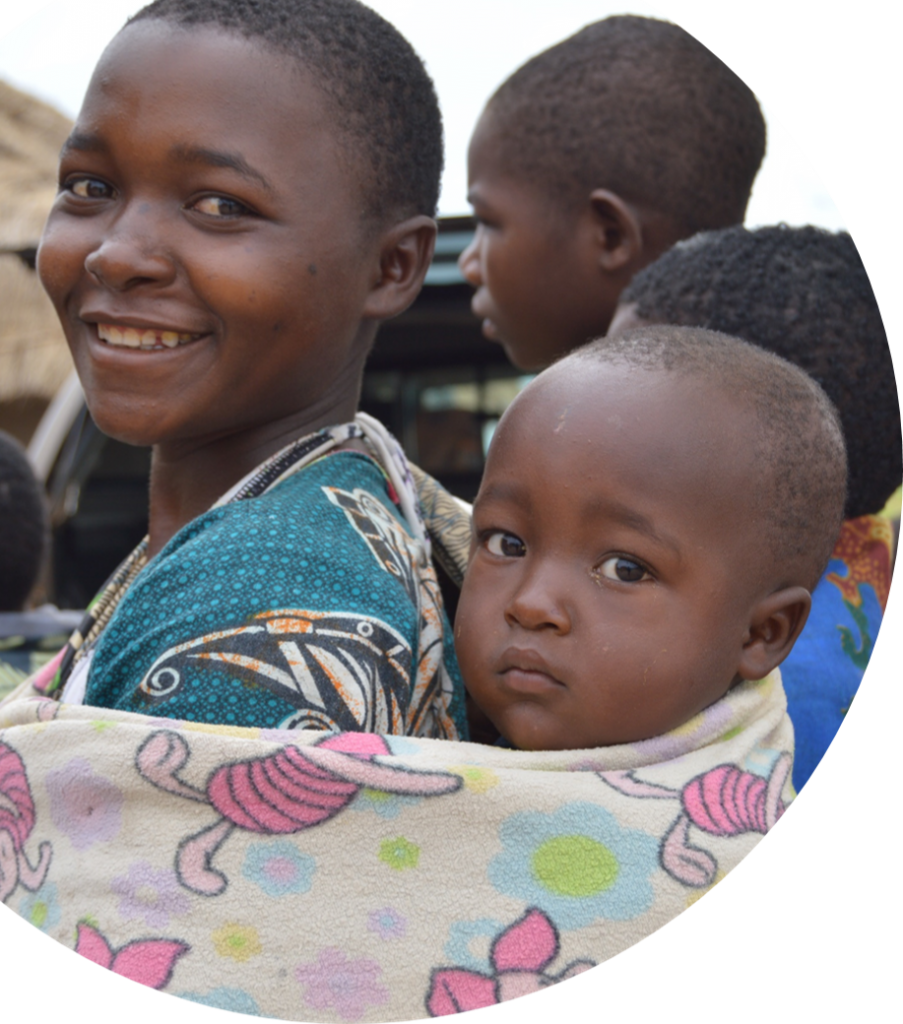 While communities in Malawi work to support vulnerable children, demand for support drastically outweighs supply. The HIV/AIDS crisis resulted in households caring for children of extended family members and neighbors, stretching already-limited resources. To respond to this crisis, the Malawian government established a system of Community-Based Organizations (CBOs) to provide for the needs of orphans and vulnerable children, such as food distribution, home healthcare visits, health screenings, and educational campaigns, and Early Childhood Development (ECD) centers called Community-Based Childcare Centers (CBCCs) that serve children between 3 and 6 years old. Though the CBO system has a national reach, the government provides no funding for CBOs or CBCCs, so they rely completely on charitable monetary and in-kind donations and community volunteers to operate. The quality of CBCC services is generally poor, with less than half offering essential feeding programs. Only half of all volunteer CBCC teachers are trained in ECD, there is high teacher attrition, and only 23 percent of facilities purposely were built as CBCCs, meaning that many are unsafe for children during severe weather.
While communities in Malawi work to support vulnerable children, demand for support drastically outweighs supply. The HIV/AIDS crisis resulted in households caring for children of extended family members and neighbors, stretching already-limited resources. To respond to this crisis, the Malawian government established a system of Community-Based Organizations (CBOs) to provide for the needs of orphans and vulnerable children, such as food distribution, home healthcare visits, health screenings, and educational campaigns, and Early Childhood Development (ECD) centers called Community-Based Childcare Centers (CBCCs) that serve children between 3 and 6 years old. Though the CBO system has a national reach, the government provides no funding for CBOs or CBCCs, so they rely completely on charitable monetary and in-kind donations and community volunteers to operate. The quality of CBCC services is generally poor, with less than half offering essential feeding programs. Only half of all volunteer CBCC teachers are trained in ECD, there is high teacher attrition, and only 23 percent of facilities purposely were built as CBCCs, meaning that many are unsafe for children during severe weather.
The COVID-19 pandemic has made childhood extreme poverty an increasingly severe and urgent global issue. A recent UN Women report found that 73 percent of women in Malawi had suffered decreases in income as a result of the pandemic, with 67 percent reporting financial difficulties, 62 percent reporting eating less or skipping a meal altogether, 46 percent not eating at all for a day or more, and 18 percent facing loss of employment of the household head. For children, COVID has worsened vulnerabilities in nutrition, due to increased household food insecurity; in health, due to overwhelmed health services and disruptions in services like childhood vaccines and antenatal care; in education, as all schools were shut down for most of 2020 and early 2021; and in social protection, as all of these factors increase risks for violence and abuse. In particular, Malawi saw “skyrocketing” rates of teen pregnancy and child marriage in this time. As of September 2020, the percentage of all pregnancies among girls ages 10 – 19 had increased to 35 percent, compared to 29 percent in 2019. Young mothers have typically not completed secondary school (many will leave school after becoming pregnant), may often be unmarried and face social stigmatization, and need particular support to build skills in early childhood development, economic empowerment, financial literacy, and self-confidence.
The Project
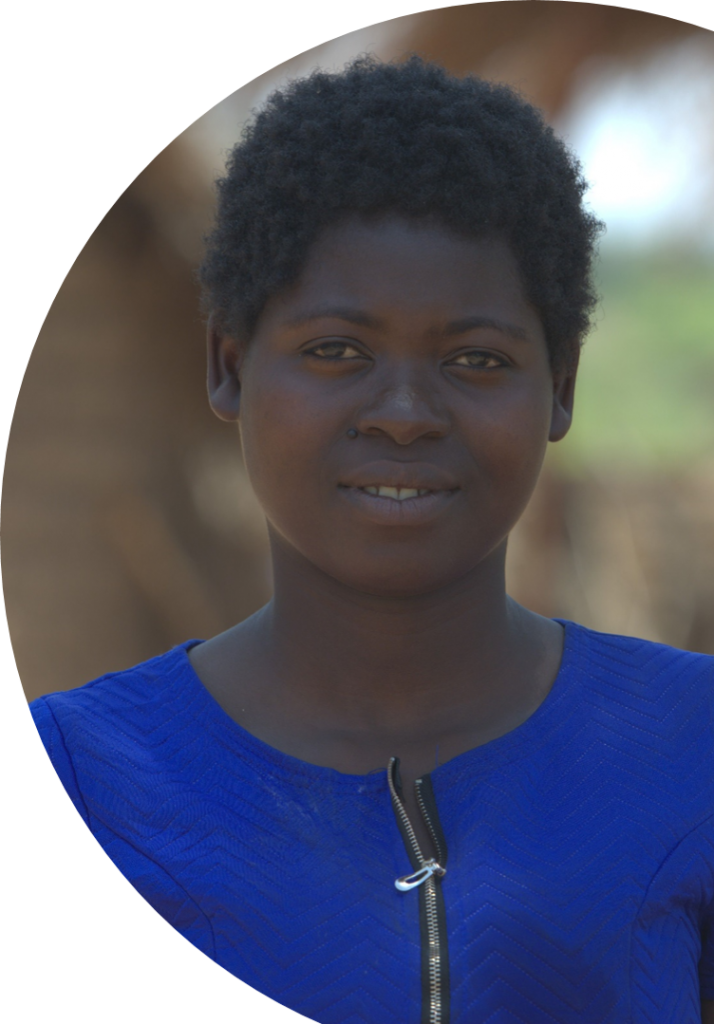 The overarching goal of the Childhoods & Livelihoods Program is to improve early childhood outcomes across nutrition, healthcare, education, housing, water, sanitation, and social protection, via promotion of knowledge, skills, and resources in Childhood Wellbeing, Sustainable Business, and Financial Inclusion. Yamba Malawi’s primary beneficiaries are Malawian children under 5 years old, whose caregivers are living in extreme poverty and struggling to provide the essential nutrition, healthcare, and protection that children need during these early, critical years. This program is unique in that it utilizes a two-level poverty graduation model for both community-wide and household-level support, which strengthens ECD care for children both at pre-primary school and at home.
The overarching goal of the Childhoods & Livelihoods Program is to improve early childhood outcomes across nutrition, healthcare, education, housing, water, sanitation, and social protection, via promotion of knowledge, skills, and resources in Childhood Wellbeing, Sustainable Business, and Financial Inclusion. Yamba Malawi’s primary beneficiaries are Malawian children under 5 years old, whose caregivers are living in extreme poverty and struggling to provide the essential nutrition, healthcare, and protection that children need during these early, critical years. This program is unique in that it utilizes a two-level poverty graduation model for both community-wide and household-level support, which strengthens ECD care for children both at pre-primary school and at home.
Mangochi, in the Southern Region of Malawi bordering Lake Malawi and Mozambique, has one of Malawi’s highest rates of extreme poverty, at 81 percent of all households, compared to 70 percent nationwide, and severe rates of childhood vulnerability, with 92 percent of children deprived of basic needs in at least one of seven key areas (nutrition, health, education, housing, water, sanitation, and social protection), and 69 percent of children deprived in more than one area. Mangochi is also a district where women and girls face significant challenges. It has one of the highest rates of child marriage within Malawi, where nationally, 42 percent of girls are married by age 18. In September 2020, the Ministry of Health identified Mangochi specifically as a district where teen pregnancies were increasing.
To respond to this issue, the Childhoods & Livelihoods Program will launch an all-women cohort in a new community in the Mangochi district. The program is a three-year, phased intervention that works at both the community-wide level, partnering with the leaders of the local Area Development Committee and Community-Based Organization, and at the household level, partnering with ultra-poor households caring for children under age 5. This Meeting the Needs of Young Mothers and Ending Childhood Poverty project will be partially funded for one year by Together Women Rise. Yamba Malawi has found that economic and financial empowerment of female caregivers, in particular, strengthens their impact on children’s outcomes, because women are more likely than men to invest in children’s care, and because women face harsher impacts of extreme poverty.
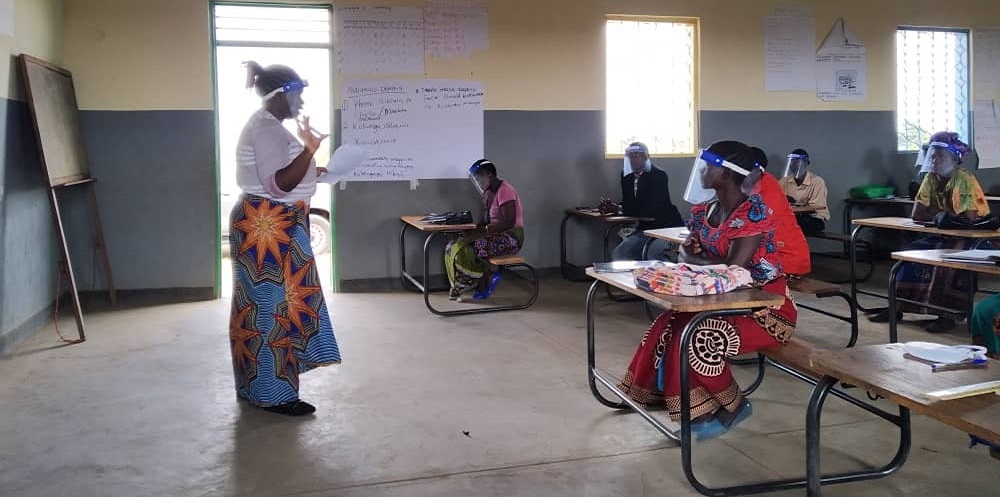
Yamba Malawi’s theory of change is that a phased, integrated three-year package of training, coaching, and resources around three pillars – Childhood Wellbeing, Sustainable Business, and Financial Inclusion – empowers vulnerable children’s caregivers to build pathways out of extreme poverty while meeting young children’s multifaceted needs. This project in Mangochi will specifically empower 250 women caring for children under age 5, with approximately 50 percent of participants being young mothers (under age 22). Through customized training and coaching, access to financial services, and launching sustainable enterprises, these women will be able to earn, spend, and save for their children’s needs. Furthermore, their community support services will be strengthened by the local ECD Task Force, CBO, and CBCCs, which will generate funds to advocate for children’s needs, to provide nutrition, healthcare, and educational support programs, and to train and retain pre-primary school teachers.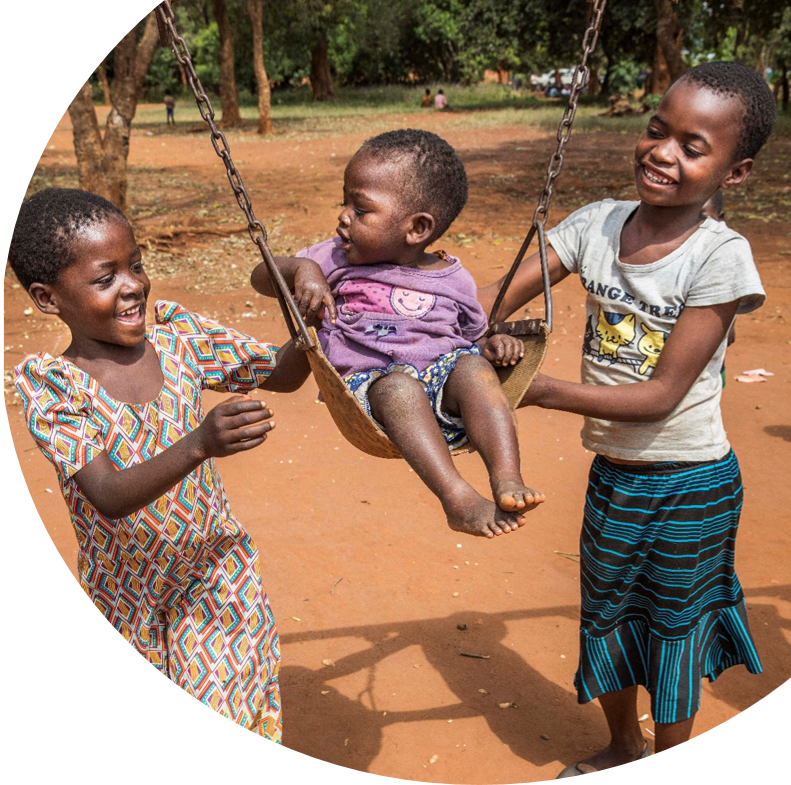
Over the three years of the entire program, support services in Childhood Wellbeing include 1. intensive training and coaching, particularly in ECD needs, using a customized, indigenous, knowledge-based curriculum that uplifts existing cultural childcare practices; 2. provision of temporary income support in order to meet children’s immediate needs during the first phase of the program; 3. training for a local government committee, the ECD Task Force, to advocate for children’s rights and needs to local stakeholders; and 4. training of leaders, caregivers, and teachers at CBOs and CBCCs to provide services for vulnerable children, including early learning and pre-primary education (by CBCCs) and general safety net services in nutrition, health, and education (by CBOs).
Services in Sustainable Business include training and coaching in entrepreneurship and transfer of seed capital for households, CBOs, CBCCs, and the ECD Task Force to launch their own enterprises. Yamba Malawi also provides linkages to appropriate local resources, like marketing partners and other training providers.
Services in Financial Inclusion include training and coaching in financial literacy, connections to financial services like mobile banking, and supporting the formation of Village Savings and Loan Associations to provide access to savings and credit.
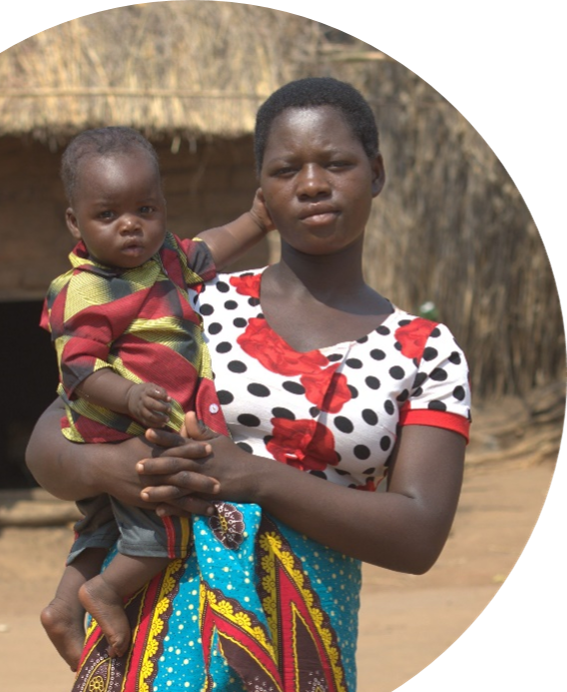 After three years, Yamba Malawi expects that all children in the household-level program will eat at least two meals per day from diverse food groups, be current on immunizations, sleep under a treated bed net, own at least a blanket, a pair of shoes, and two sets of clothing, be bathed regularly, be enrolled in school, have access to safe toys, use safe drinking water and sanitation practices, have their births registered, and not be abused or exploited. Also expected are measurable increases in women’s incomes, assets, and savings, and increased use of financial planning and financial services including mobile money, savings groups, and/or banking and microfinance institutions. Women will have built self-confidence as they progress towards meeting the personal goals they set for themselves and their children at the beginning of the program.
After three years, Yamba Malawi expects that all children in the household-level program will eat at least two meals per day from diverse food groups, be current on immunizations, sleep under a treated bed net, own at least a blanket, a pair of shoes, and two sets of clothing, be bathed regularly, be enrolled in school, have access to safe toys, use safe drinking water and sanitation practices, have their births registered, and not be abused or exploited. Also expected are measurable increases in women’s incomes, assets, and savings, and increased use of financial planning and financial services including mobile money, savings groups, and/or banking and microfinance institutions. Women will have built self-confidence as they progress towards meeting the personal goals they set for themselves and their children at the beginning of the program.
The project will enroll 250 women caring for an estimated total of 1,000 children (including 500 girls). The community-level program will also impact an estimated 6,000 vulnerable children (50 percent girls) throughout the community with improved safety net services and pre-primary education.
Direct impact: 250 women and 1,000 children (including 500 girls)
Indirect impact: 6,000 children (including 3,000 girls)
UN Sustainable Development Goals
![]()
![]()
![]()
![]()
![]()
![]()
![]()
![]()
Questions for Discussion
- How do you think the inclusion of Savings and Loan Associations can increase women’s opportunities for financial and entrepreneurial success?
- Compare the roles of community programming and household-level support. How do they work together to help overcome barriers to success?
- What do you think are the possible long-term outcomes from strengthening early childhood development programs?
How the Grant Will be Used
Together Women Rise’s grant of $50,000 will help fund the following:
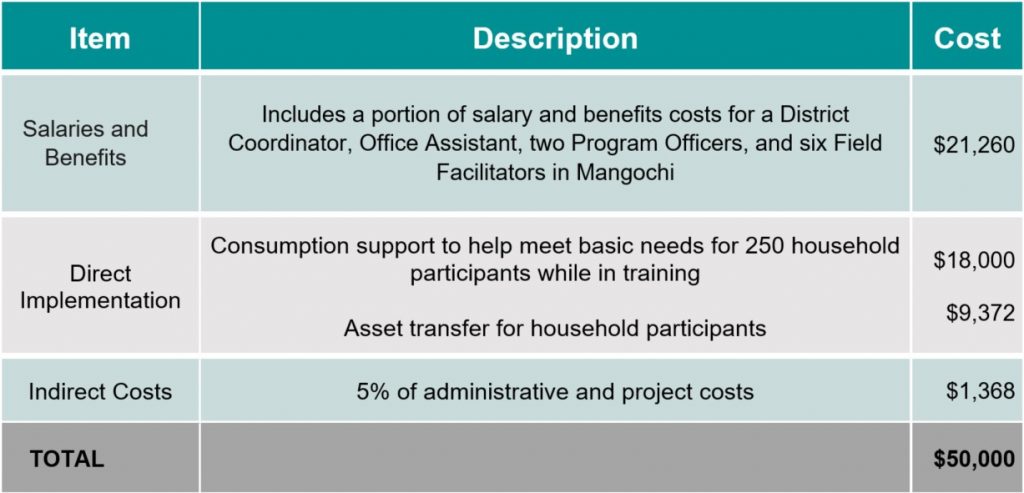
Why We Love This Project/Organization
We love Yamba Malawi’s unique poverty graduation model with two levels of programming: community-wide programming and household-level support. This systems approach to intervening early to reduce family poverty and strengthen Early Childhood Development and Childhood Protection seeks to reduce low levels of schooling, child marriage, forced labor, and domestic violence for women and girls in later years.
Evidence of Success
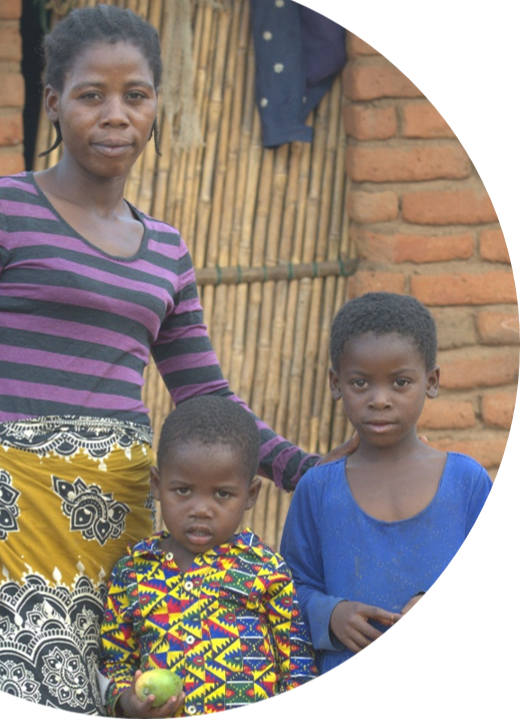 Since its founding, Yamba Malawi has impacted the lives of more than 200,000 children. Since 2017, the Childhoods & Livelihoods Program has partnered with seven CBOs, 54 CBCCs, over 1,000 rural smallholder farming households, and thousands of caregivers through training in childhood development, and promotion of modern agribusiness, entrepreneurship, and financial services. Its most recent program data (for household participants in Lilongwe District in 2020) showed the following impacts:
Since its founding, Yamba Malawi has impacted the lives of more than 200,000 children. Since 2017, the Childhoods & Livelihoods Program has partnered with seven CBOs, 54 CBCCs, over 1,000 rural smallholder farming households, and thousands of caregivers through training in childhood development, and promotion of modern agribusiness, entrepreneurship, and financial services. Its most recent program data (for household participants in Lilongwe District in 2020) showed the following impacts:
Nutrition: children eating three or more meals per day increased from 18 percent of children to 90 percent; children eating three or more food groups per day increased from 31 percent of children to 62 percent.
Education: 71 percent increase in regular school attendance for children under 10 years old, 92 percent increase for children over 10 years old.
Children’s basic needs: children owning a pair of shoes increased 50 percent; children owning a sleeping mat increased 19 percent; children owning a blanket increased 9 percent.
Income: average income increased 259 percent (from average pre-program income of $73 to average income of $262), with an average of 85 percent going directly to children’s needs.
Financial inclusion: Households with savings increased from 2 percent of households to 22 percent; households with access to credit through VSLAs tripled, and households using mobile banking more than doubled.
Voices of the Girls
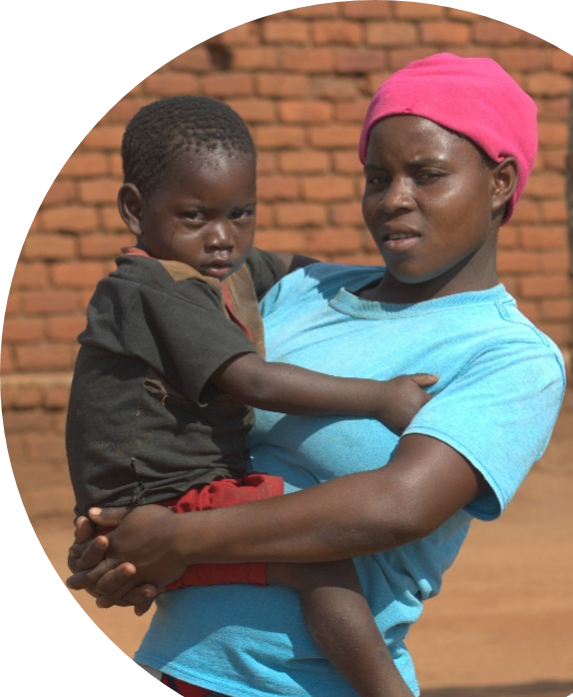 My life has changed for the better, all thanks to Yamba Malawi. My business will continue to grow because of this organization. Now, I will be able to eat breakfast and have enough soap. My child will be able to go to school after being well taken care of.
My life has changed for the better, all thanks to Yamba Malawi. My business will continue to grow because of this organization. Now, I will be able to eat breakfast and have enough soap. My child will be able to go to school after being well taken care of.
– Prisca, age 21
With the coming of Yamba Malawi, I will be able to do my dream business. By the end of six months, we will receive 120 USD as start-up capital. I will use that money to grow and sustain my business for the better.
– Rhoda, age 21
When I learned about Yamba Malawi, I knew my dreams will be realized. By the end of six months, they will give us money as start-up capital for our own business. I will use that money to start ordering fish from the lake, and sell it in bigger market places, these are places like Sharpe Valley, Chilipa, and Pengapenga. From the business, I will be able to generate profit and save it at the bank. After making savings at the bank, I will start investing through buying land. I will also build a house and buy some livestock. All thanks to Yamba Malawi.
– Frida, age 21
About the Organization
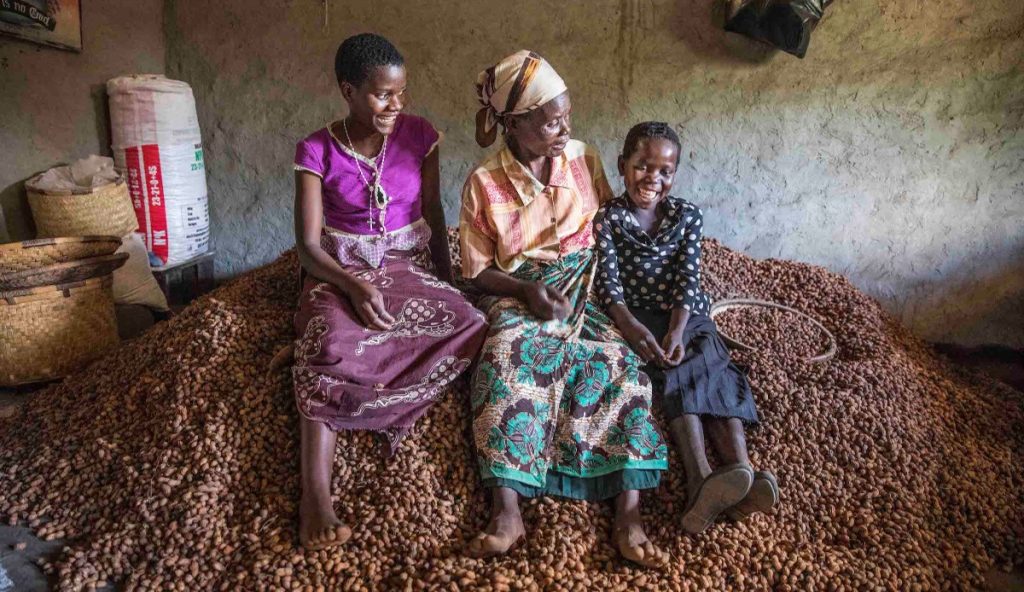
In 2021, Yamba Malawi celebrated its 15th anniversary of collaborating with local partners to meet the needs of vulnerable children in Malawi.
Yamba Malawi was founded in 2006 by Melissa Kushner, who was then working with the UN Fund for International Partnerships in Malawi. Initially, the organization collected and distributed donated goods like clothes and school supplies. To do so, it built partnerships with existing local groups that serve vulnerable children, called Community-Based Organizations (CBOs).
In 2011, responding to feedback from community partners and to increase impact and sustainability, Yamba Malawi pivoted its service model away from donation distribution and began to launch sustainable local businesses to provide ongoing funding for CBOs. Building on this experience, in 2017, Yamba Malawi launched the Childhoods & Livelihoods Program, which aimed to achieve both deep and wide impacts by integrating the community-level CBO programs with a pilot program of household-level poverty graduation activities. Also in 2017, Peter Twyman, formerly the director of Alicia Keys’ Keep a Child Alive Foundation, joined as Executive Director, with Melissa Kushner transitioning to the role of Board Chair. In 2021, Malawi Country Director Getrude Kabwazi was promoted to Co-Executive Director, and Yamba Malawi registered as a local nonprofit organization in Malawi, rather than a foreign subsidiary organization. Yamba Malawi is committed to continuing to build a co-leadership model as part of their commitment to decolonizing international development. In 2021, it began to implement a three-year scaling plan that will enable it to reach 100,000 additional children by 2023.
Where They Work
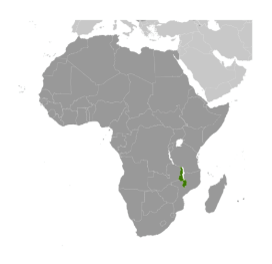
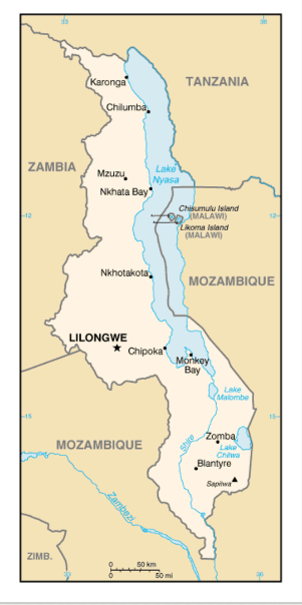
Landlocked Malawi ranks among the world’s least developed countries. The country’s economic performance has historically been constrained by policy inconsistency, macroeconomic instability, poor infrastructure, rampant corruption, high population growth, and poor health and education outcomes that limit labor productivity. The economy is predominately agricultural with about 80 percent of the population living in rural areas. Agriculture accounts for about one-third of GDP and 80 percent of export revenues.
The total population of Malawi is approximately 20.3 million (July 2021 est.), with 51.5 percent of the population living below the poverty line. The median age in Malawi is 16.8 years for the total population. The birth rate is 27.94 births/1,000 population (2022 est.). Mother’s mean age at first birth is 19.1 years (2015/16 est.). Life expectancy is 69.04 years for men; 75.33 years for women (2021 est.).
The maternal mortality rate in Malawi is 349 deaths/100,000 live births (2017 est.). The infant mortality rate is 34.19 deaths/1,000 live births. Nine percent of children under the age of 5 years are underweight. An estimated 990,000 people are living with HIV/AIDS (2020 est.). The degree of risk of major infectious diseases is very high (2020). The literacy rate for the total population is 62.1 percent, with a rate of 68.8 percent for males and 55.2 percent for females (2015).
A closer look at using a systems approach to multidimensional poverty
The key to the success of the Yamba Malawi model is the holistic approach that focuses on the multiple facets of childhood poverty, rather than just one area. In researching this approach, Yamba Malawi received feedback from community partners on interventions that had failed due to issues outside of their intended scope.
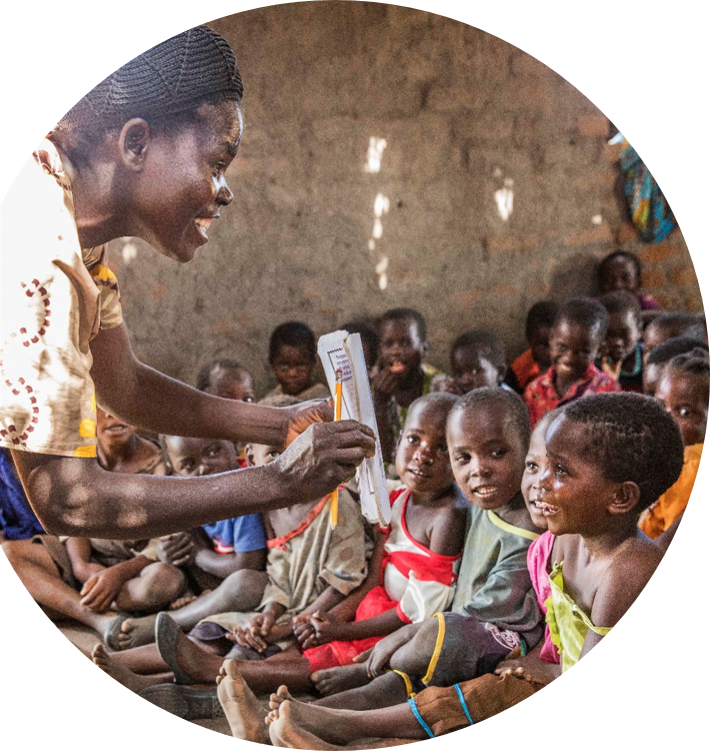 A multidimensional measure of poverty incorporates a range of indicators, not just income level. Multidimensional poverty encompasses various struggles experienced by people in poverty in their daily lives – such as poor health, lack of access to formal education, inadequate living standards, disempowerment, poor quality of work, the threat of violence, and living in areas that are environmentally hazardous, among others.
A multidimensional measure of poverty incorporates a range of indicators, not just income level. Multidimensional poverty encompasses various struggles experienced by people in poverty in their daily lives – such as poor health, lack of access to formal education, inadequate living standards, disempowerment, poor quality of work, the threat of violence, and living in areas that are environmentally hazardous, among others.
Yamba Malawi learned that to be successful it must not only strengthen services for children but also focus on livelihoods and financial inclusion. By empowering caregivers to earn income, to save income and do financial planning, and by educating and mentoring caregivers in how to spend income to meet children’s needs, its program succeeds in its mission of uplifting vulnerable children by empowering communities to break the cycle of poverty. This is the systems approach principle which places individual system elements in their environments and observes the relationships between them.
Using this approach, Yamba Malawi developed its program’s three pillars of Childhood Wellbeing, Sustainable Business, and Financial Inclusion. The unique ECD training program utilizes a customized, indigenous, knowledge-based curriculum that uplifts existing childcare practices. It teaches the importance of educating young girls and boys equally. It also emphasizes the importance of registering all children’s births. This, for example, will in turn will help young girls in the future – registering child births helps counter the problem of girls without proof of age being forced into marriage before they are legally eligible. The ECD Task Force advocates for children’s rights and needs to local stakeholders and empowers community advocacy groups to improve social protection of women’s and girls’ rights.
A systems approach can help capture the complexity of multidimensional poverty and build pathways out of it and toward a brighter future.
Source Materials
Oxford Poverty & Human Development Initiative
